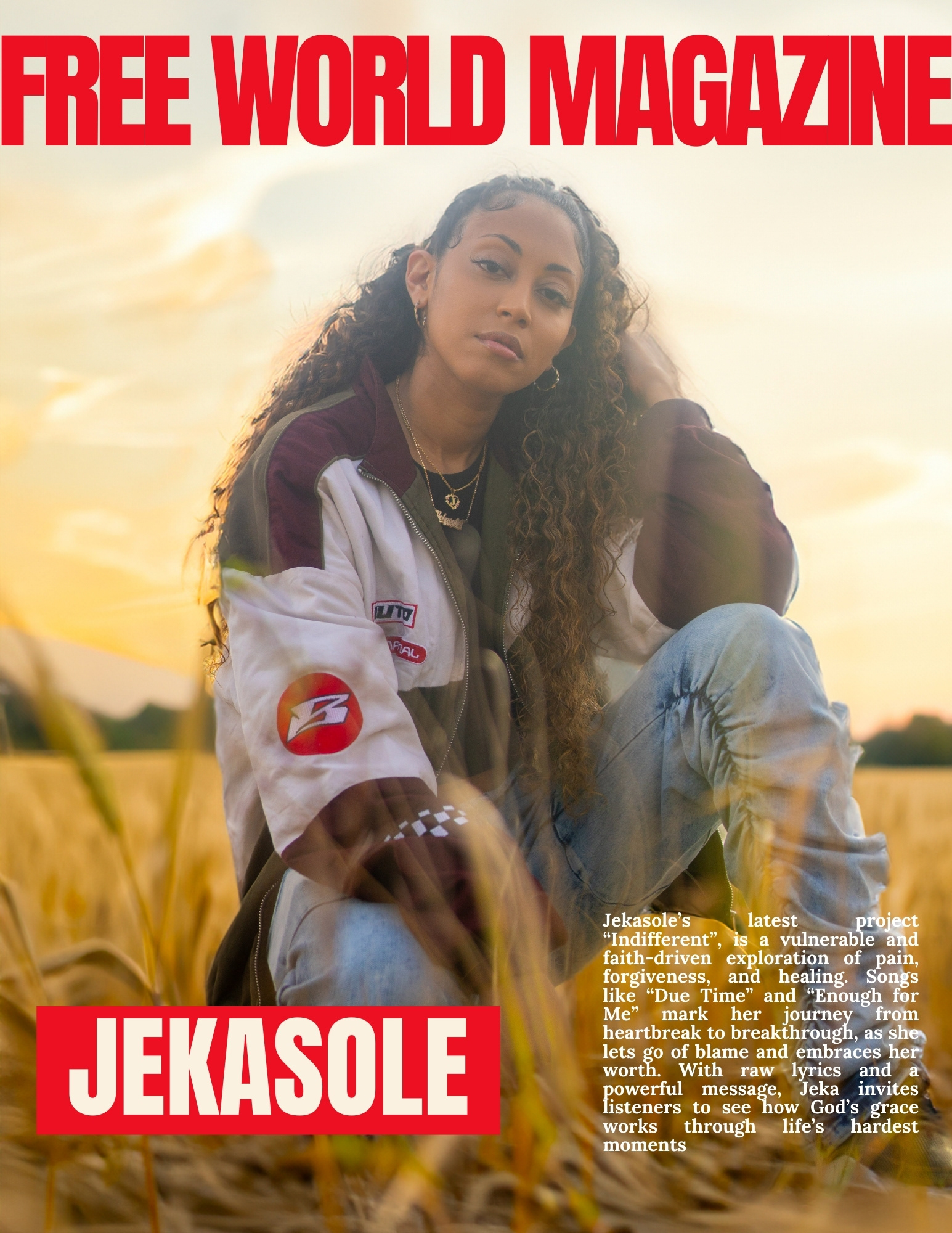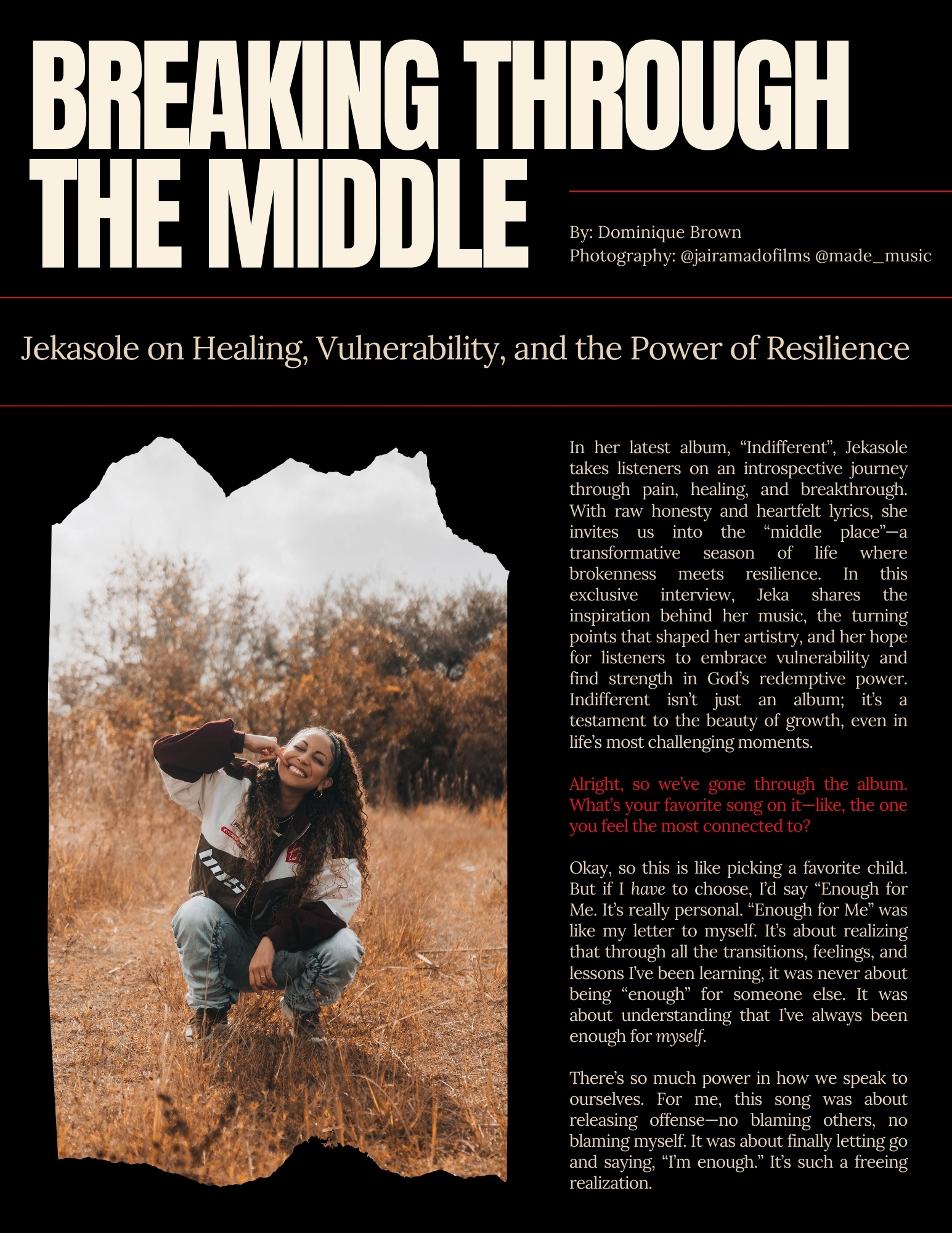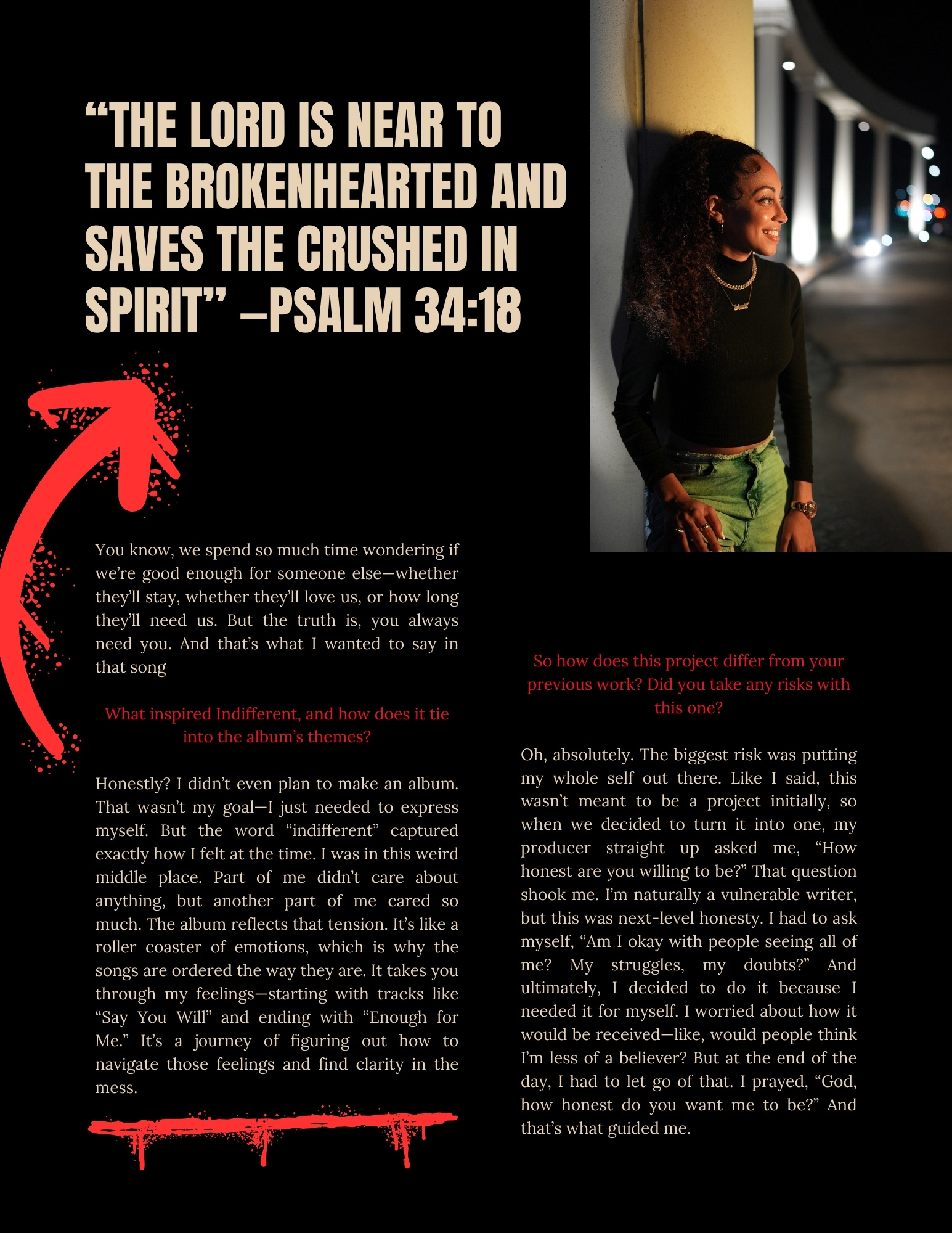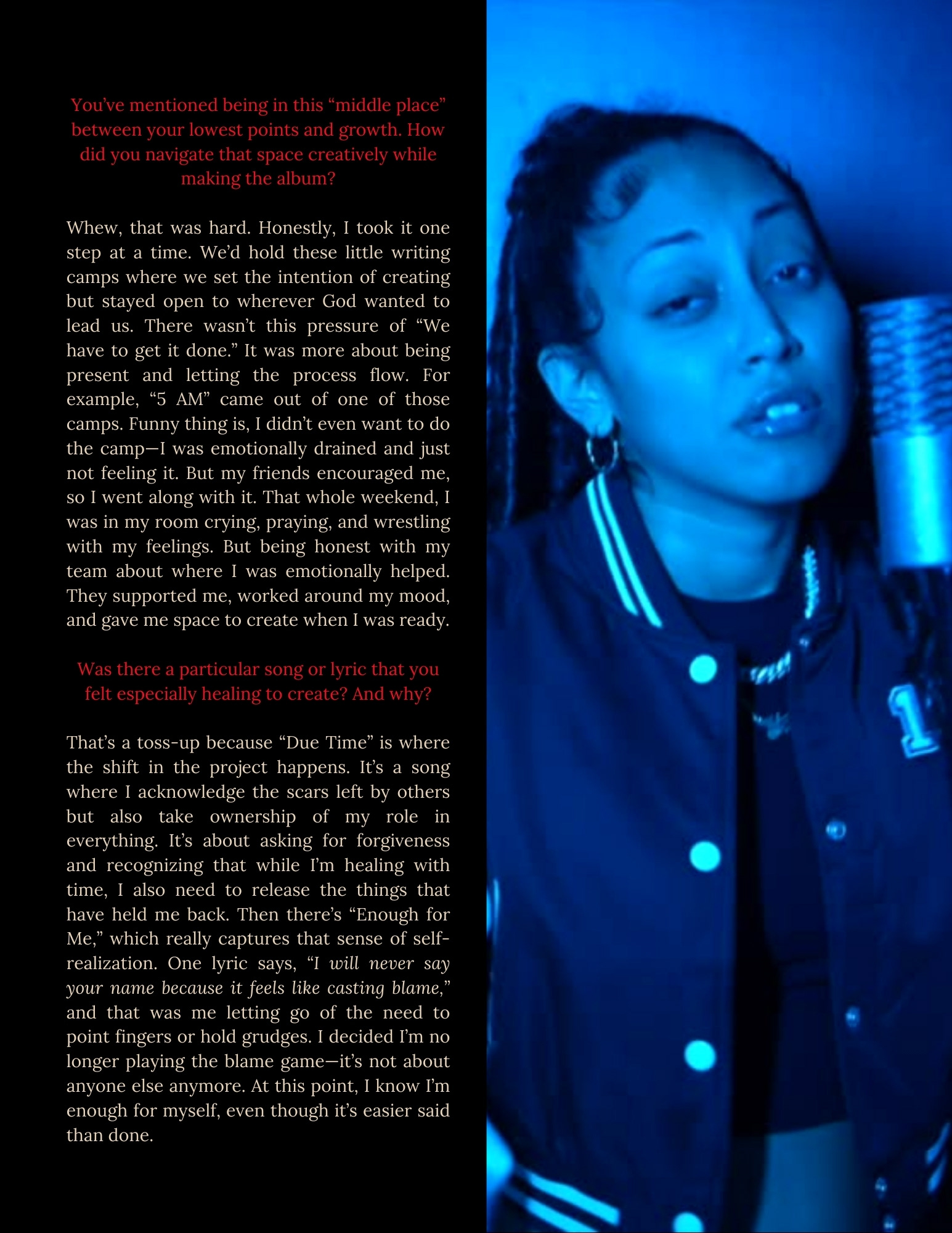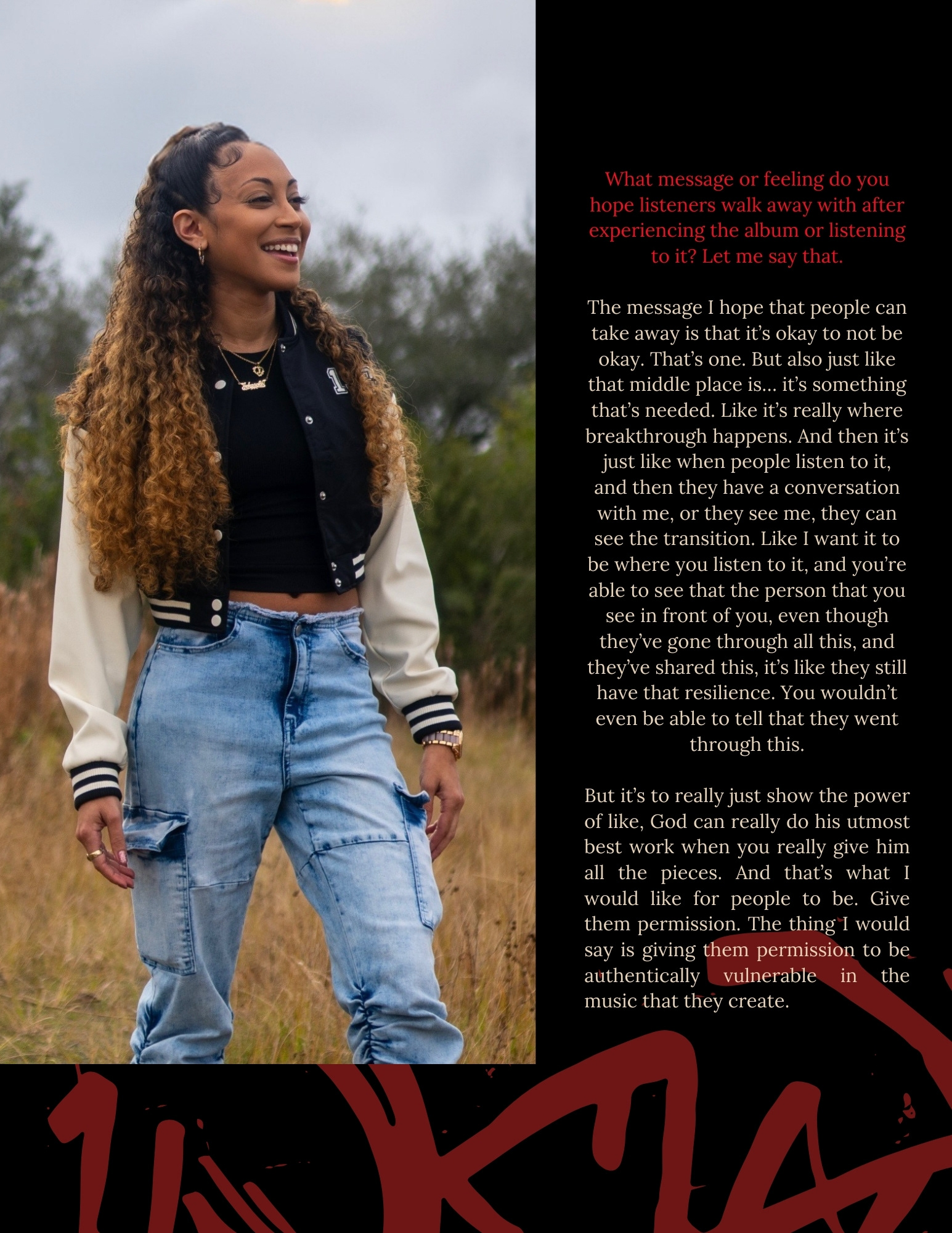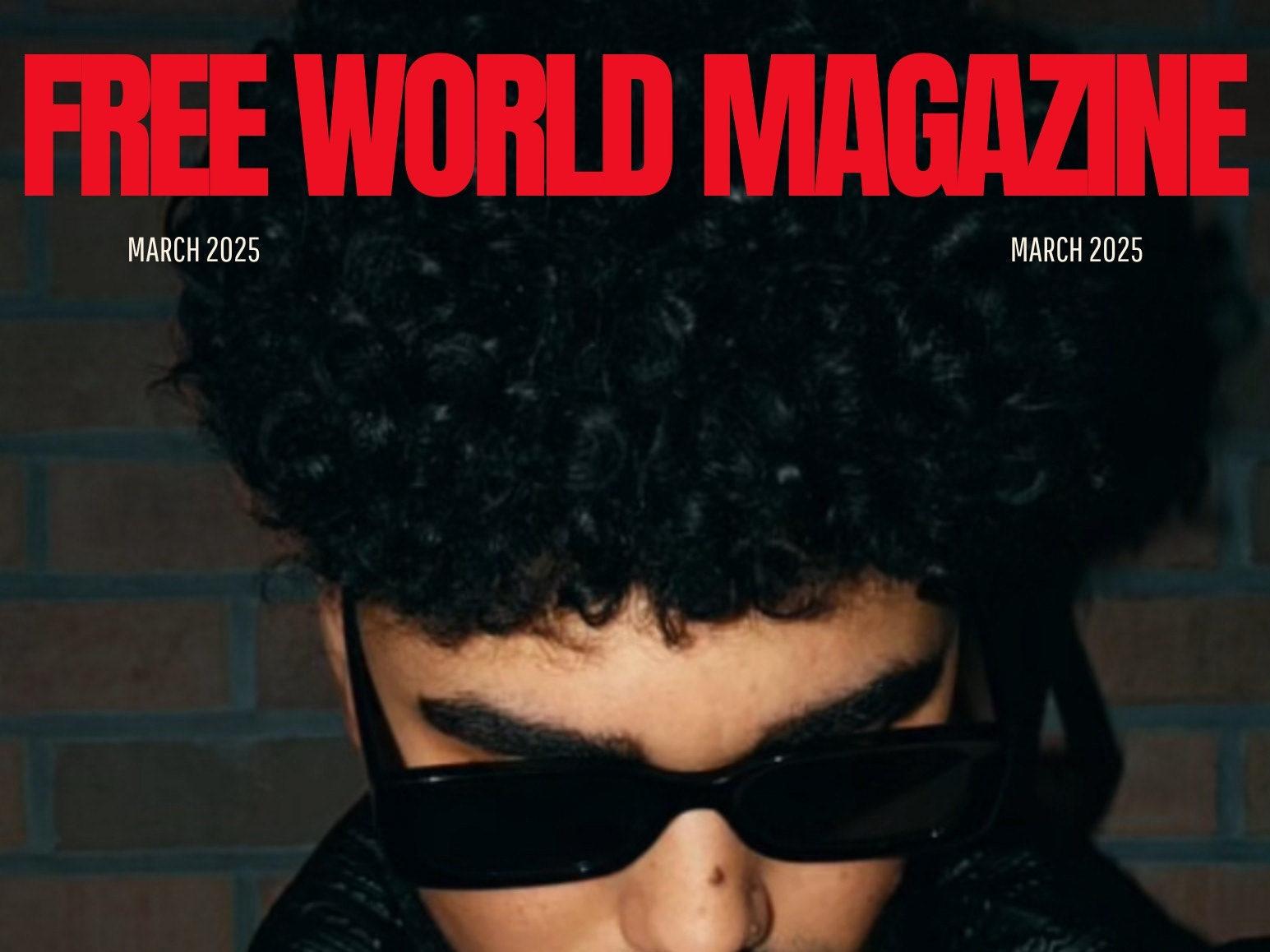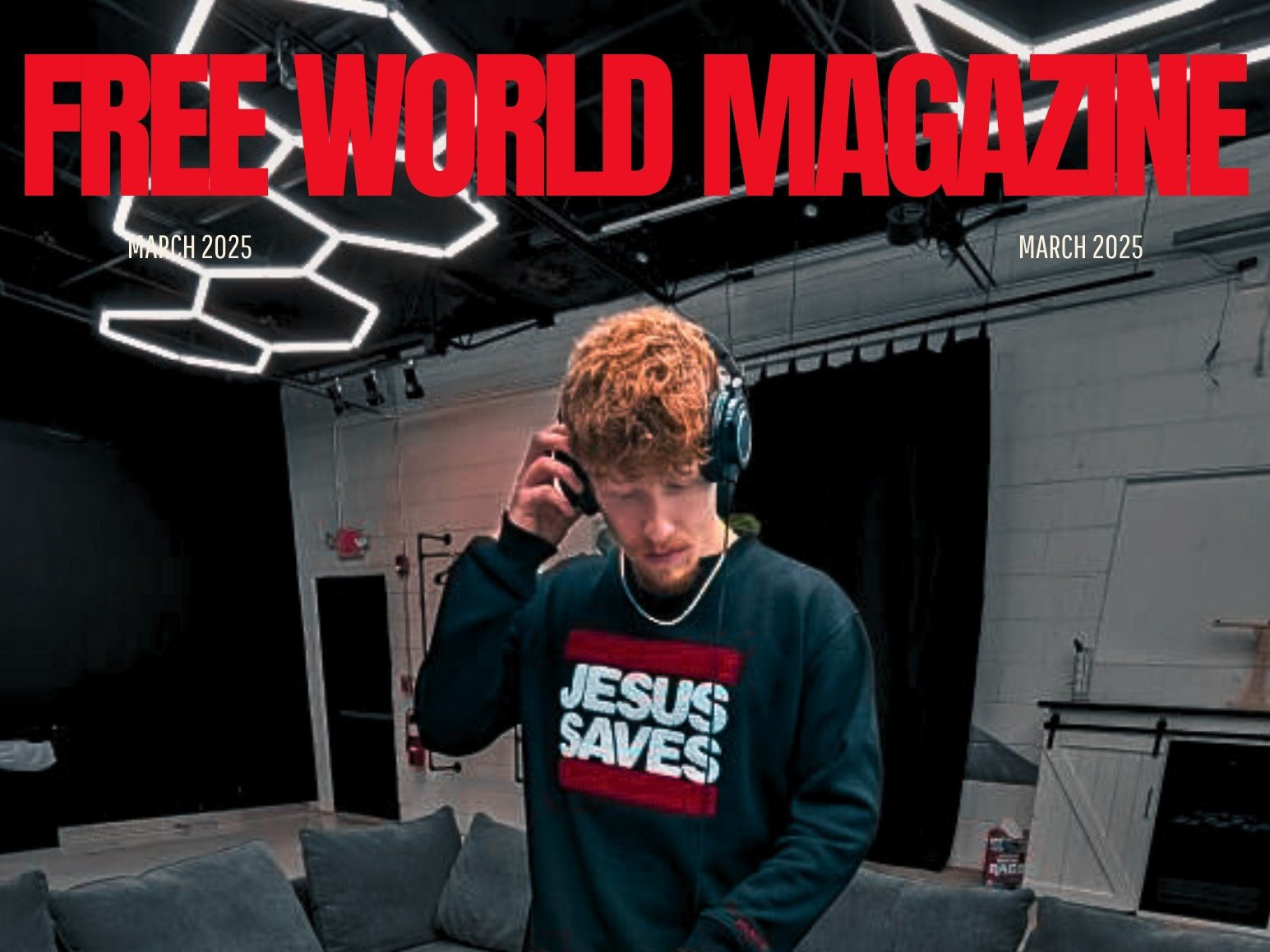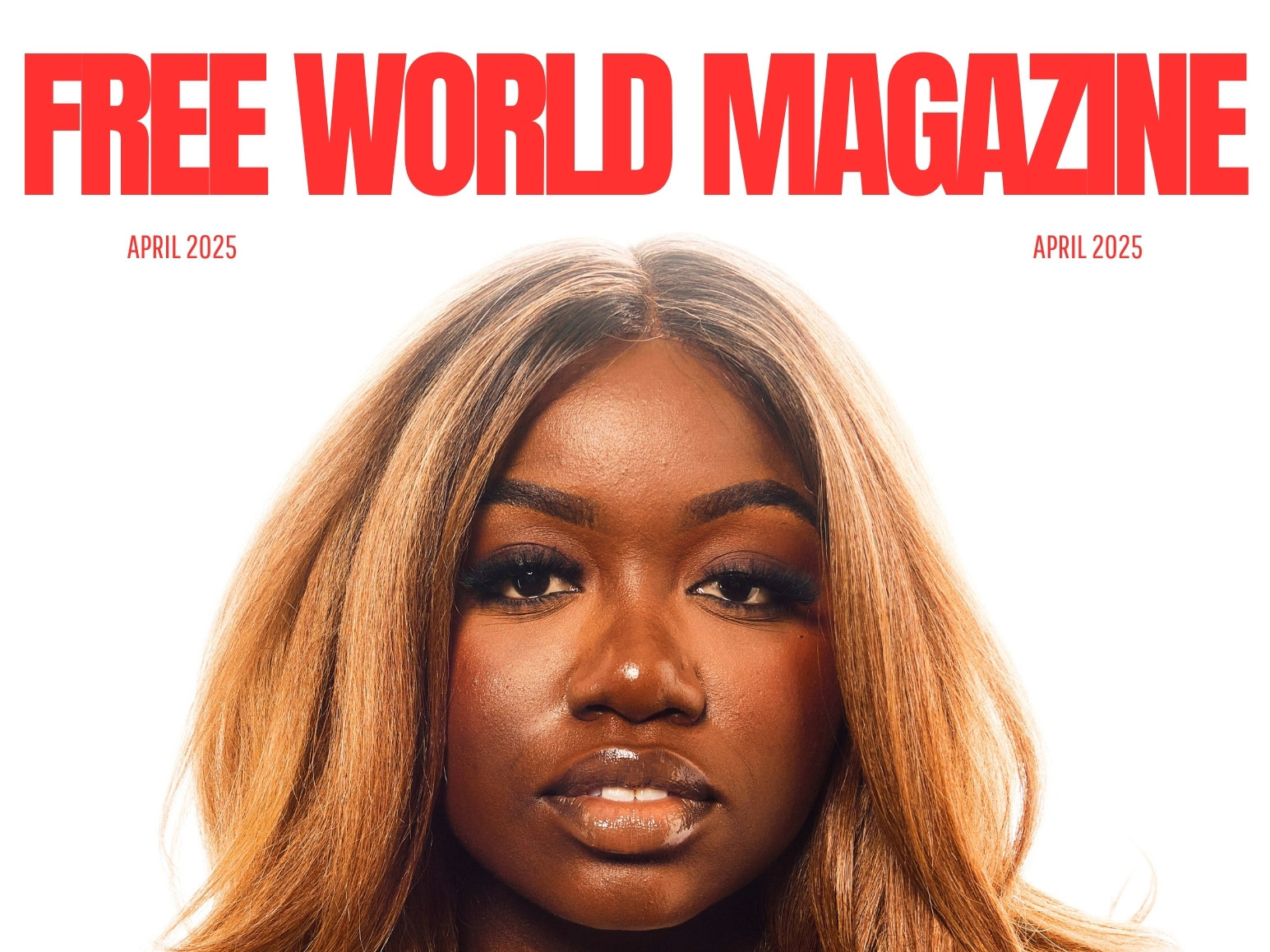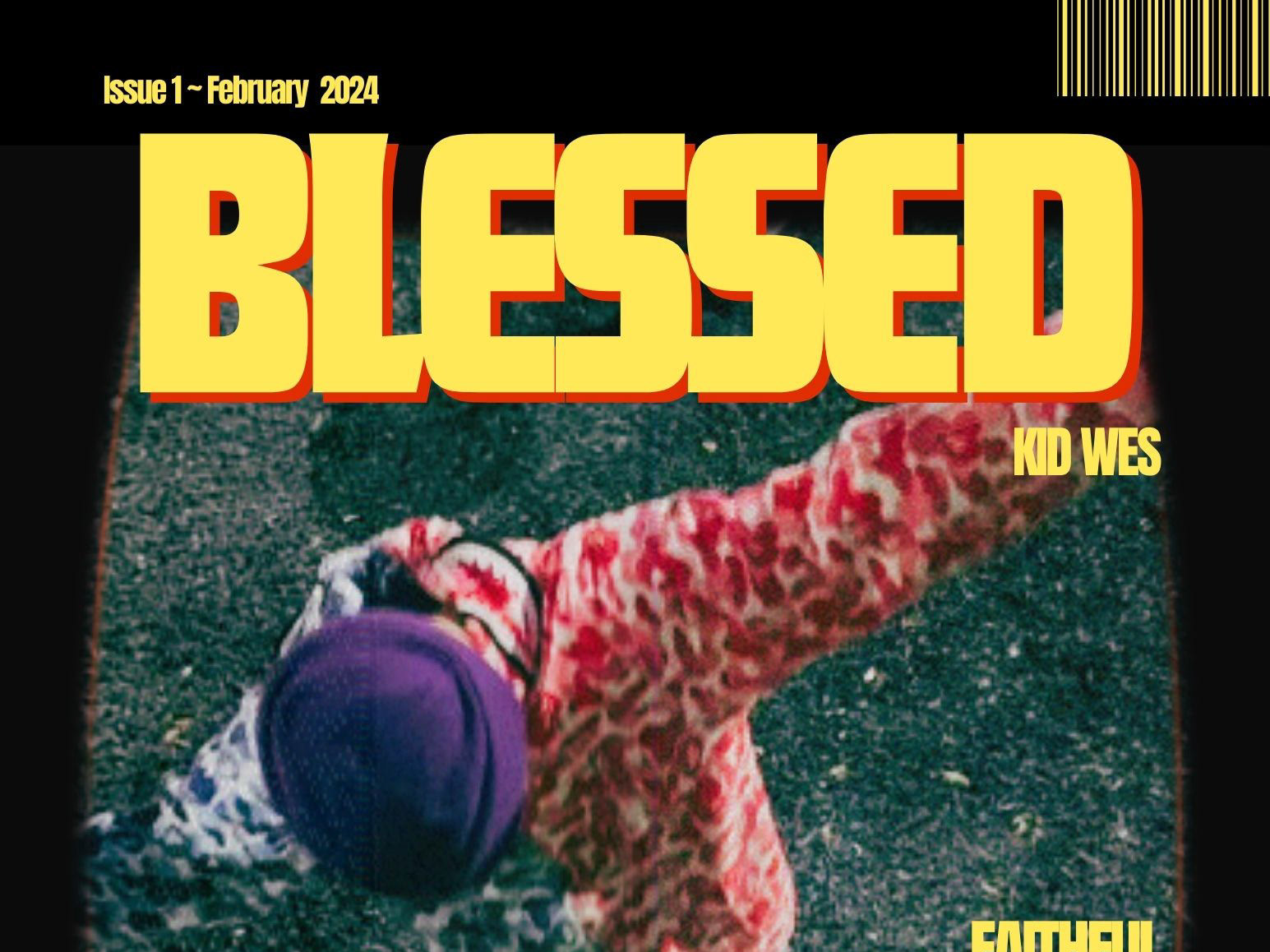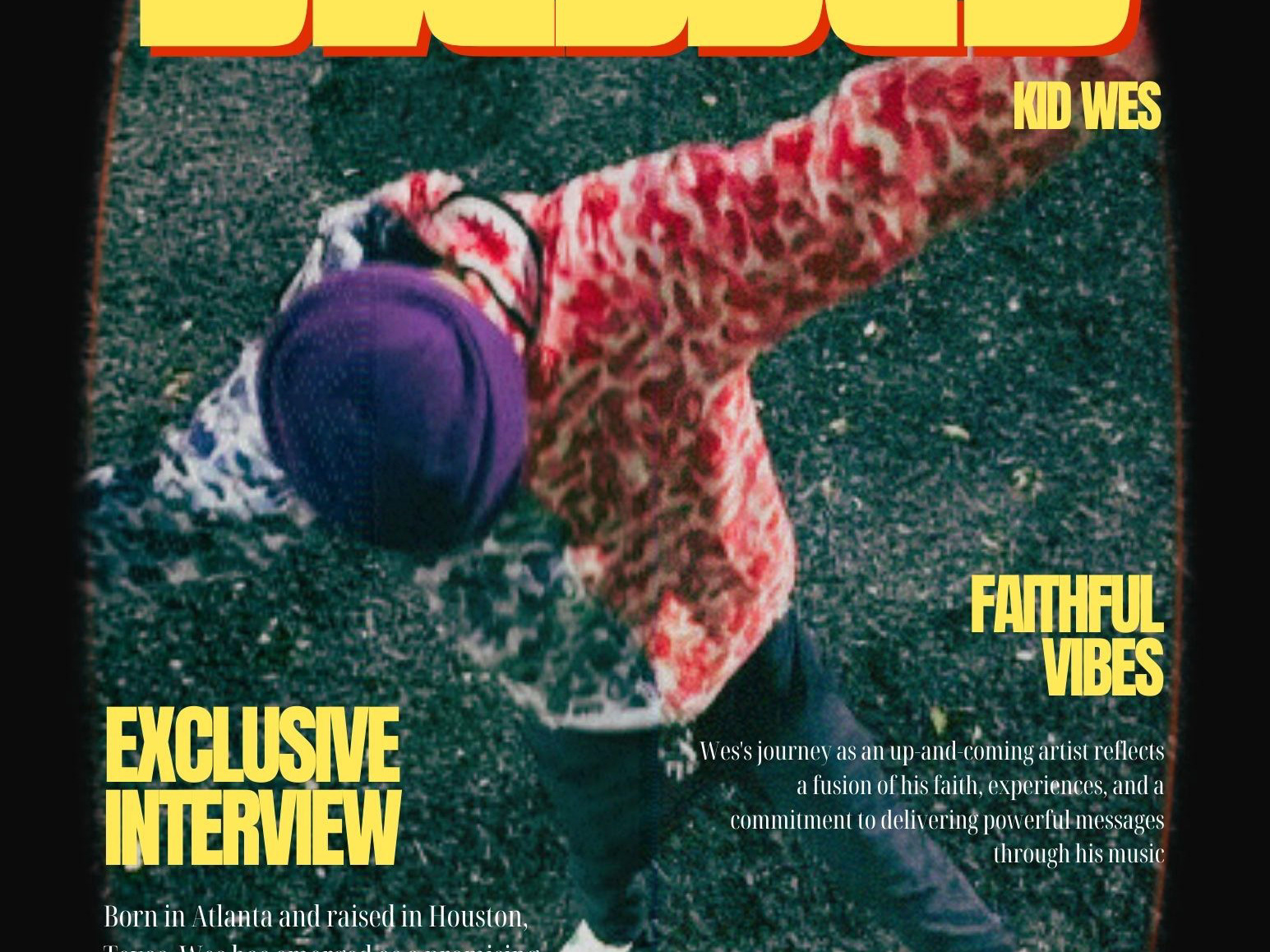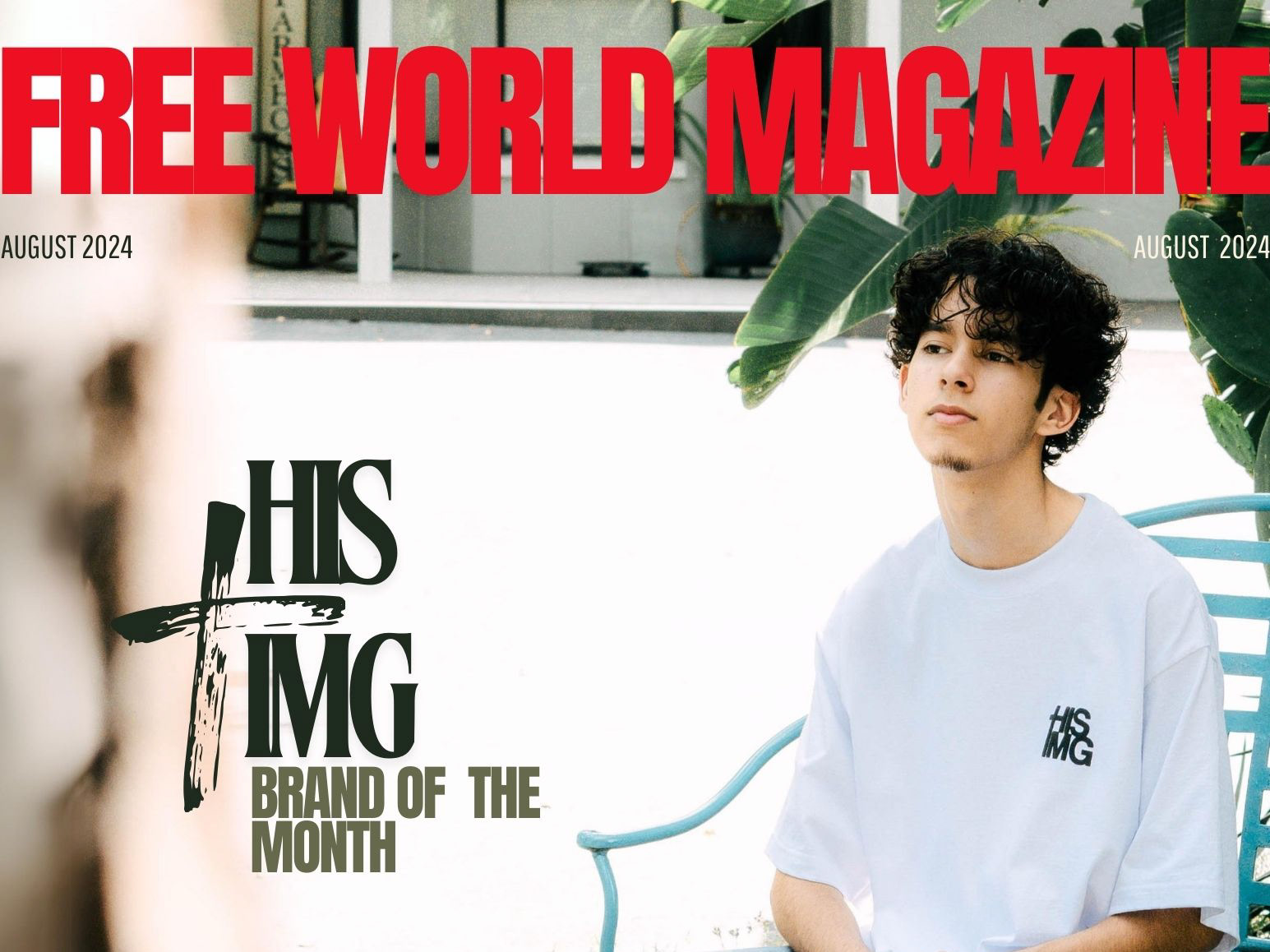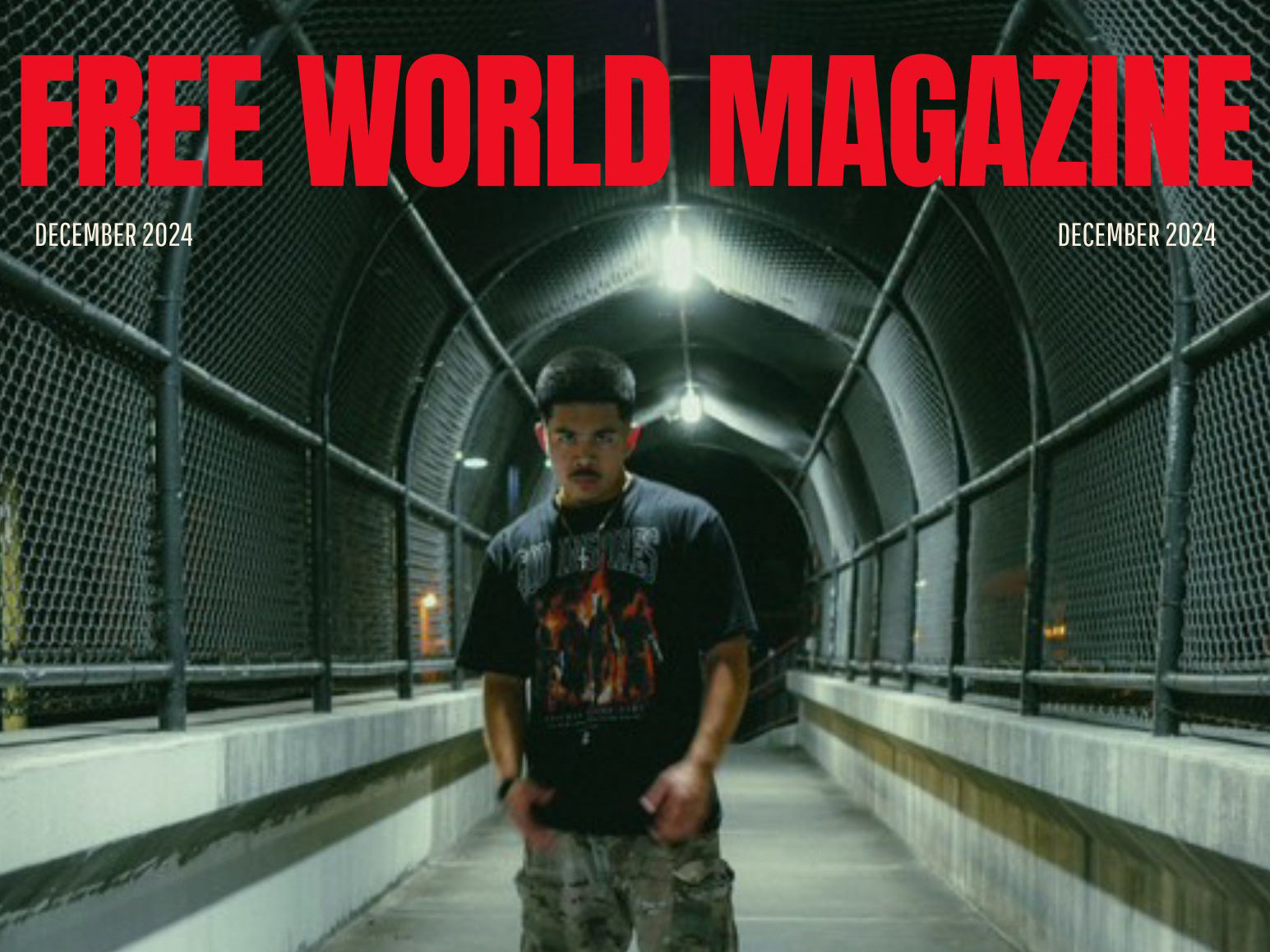Jekasole on Healing, Vulnerability, and the Power of Resilience
in her latest album, “Indifferent”, Jekasole takes listeners on an introspective journey through pain, healing, and breakthrough. With raw honesty and heartfelt lyrics, she invites us into the “middle place”—a transformative season of life where brokenness meets resilience. In this exclusive interview, Jeka shares the inspiration behind her music, the turning points that shaped her artistry, and her hope for listeners to embrace vulnerability and find strength in God’s redemptive power. Indifferent isn’t just an album; it’s a testament to the beauty of growth, even in life’s most challenging moments.
Alright, so we’ve gone through the album. What’s your favorite song on it—like, the one you feel the most connected to?
Okay, so this is like picking a favorite child. But if I have to choose, I’d say “Enough for Me. It’s really personal. “Enough for Me” was like my letter to myself. It’s about realizing that through all the transitions, feelings, and lessons I’ve been learning, it was never about being “enough” for someone else. It was about understanding that I’ve always been enough for myself. There’s so much power in how we speak to ourselves. For me, this song was about releasing offense—no blaming others, no blaming myself. It was about finally letting go and saying, “I’m enough.” It’s such a freeing realization.You know, we spend so much time wondering if we’re good enough for someone else—whether they’ll stay, whether they’ll love us, or how long they’ll need us. But the truth is, you always need you. And that’s what I wanted to say in that song
What inspired Indifferent, and how does it tie into the album’s themes?
Honestly? I didn’t even plan to make an album. That wasn’t my goal—I just needed to express myself. But the word “Indifferent” captured exactly how I felt at the time. I was in this weird middle place. Part of me didn’t care about anything, but another part of me cared so much. The album reflects that tension. It’s like a roller coaster of emotions, which is why the songs are ordered the way they are. It takes you through my feelings—starting with tracks like “Say You Will” and ending with “Enough for Me.” It’s a journey of figuring out how to navigate those feelings and find clarity in the mess.
So how does this project differ from your previous work? Did you take any risks with this one?
Oh, absolutely. The biggest risk was putting my whole self out there. Like I said, this wasn’t meant to be a project initially, so when we decided to turn it into one, my producer straight up asked me, “How honest are you willing to be?” That question shook me. I’m naturally a vulnerable writer, but this was next-level honesty. I had to ask myself, “Am I okay with people seeing all of me? My struggles, my doubts?” And ultimately, I decided to do it because I needed it for myself. I worried about how it would be received—like, would people think I’m less of a believer? But at the end of the day, I had to let go of that. I prayed, “God, how honest do you want me to be?” And that’s what guided me.


You’ve mentioned being in this “middle place” between your lowest points and growth. How did you navigate that space creatively while making the album?
Whew, that was hard. Honestly, I took it one step at a time. We’d hold these little writing camps where we set the intention of creating but stayed open to wherever God wanted to lead us. There wasn’t this pressure of “We have to get it done.” It was more about being present and letting the process flow. For example, “5 AM” came out of one of those camps. Funny thing is, I didn’t even want to do the camp—I was emotionally drained and just not feeling it. But my friends encouraged me, so I went along with it. That whole weekend, I was in my room crying, praying, and wrestling with my feelings. But being honest with my team about where I was emotionally helped. They supported me, worked around my mood, and gave me space to create when I was ready.
Was there a particular song or lyric that you felt especially healing to create? And why?
That’s a toss-up because “Due Time” is where the shift in the project happens. It’s a song where I acknowledge the scars left by others but also take ownership of my role in everything. It’s about asking for forgiveness and recognizing that while I’m healing with time, I also need to release the things that have held me back. Then there’s “Enough for Me,” which really captures that sense of self-realization. One lyric says, “I will never say your name because it feels like casting blame,” and that was me letting go of the need to point fingers or hold grudges. I decided I’m no longer playing the blame game—it’s not about anyone else anymore. At this point, I know I’m enough for myself, even though it’s easier said than done.
What message or feeling do you hope listeners walk away with after experiencing the album or listening to it? Let me say that.
The message I hope that people can take away is that it’s okay to not be okay. That’s one. But also just like that middle place is… it’s something that’s needed. Like it’s really where breakthrough happens. And then it’s just like when people listen to it, and then they have a conversation with me, or they see me, they can see the transition. Like I want it to be where you listen to it, and you’re able to see that the person that you see in front of you, even though they’ve gone through all this, and they’ve shared this, it’s like they still have that resilience. You wouldn’t even be able to tell that they went through this. But it’s to really just show the power of like, God can really do his utmost best work when you really give him all the pieces. And that’s what I would like for people to be. Give them permission. The thing I would say is giving them permission to be authentically vulnerable in the music that they create.
